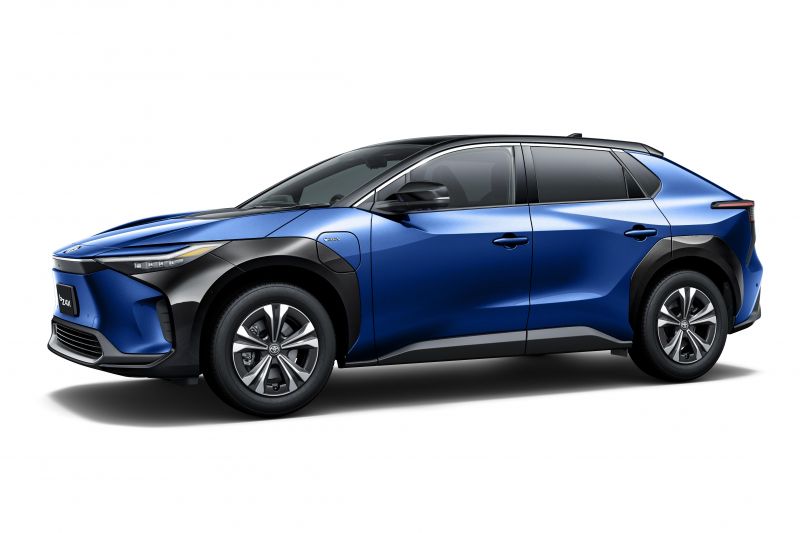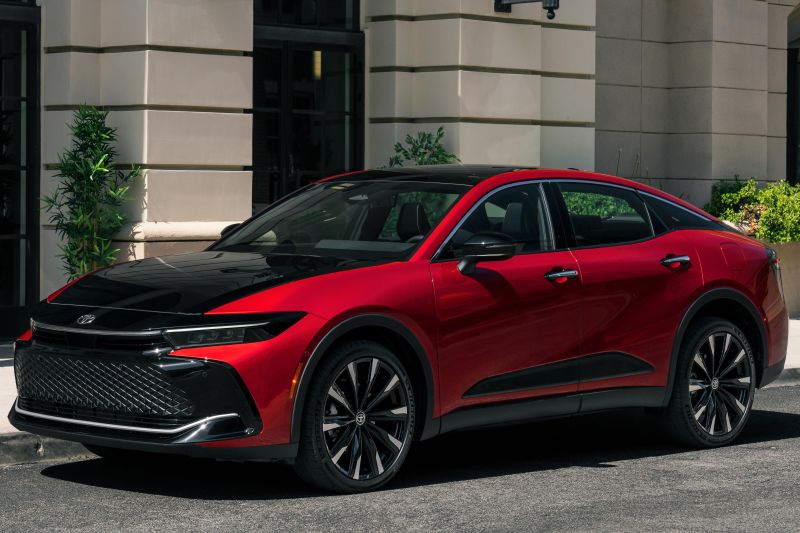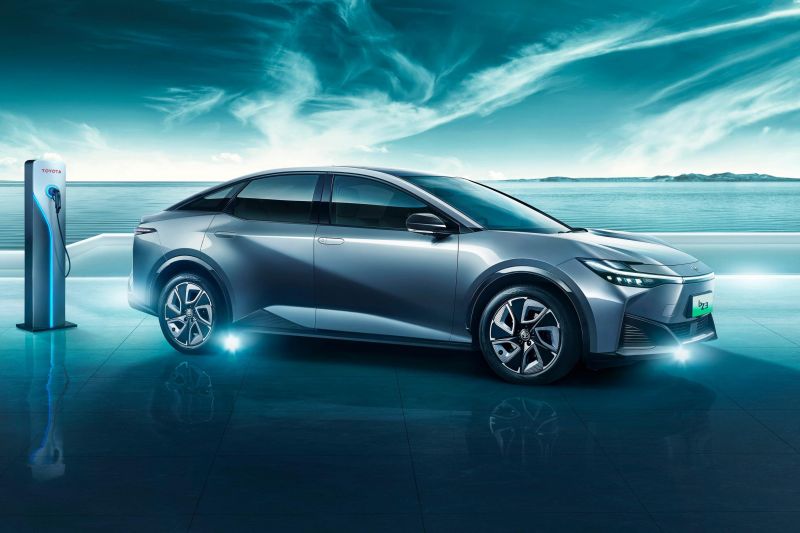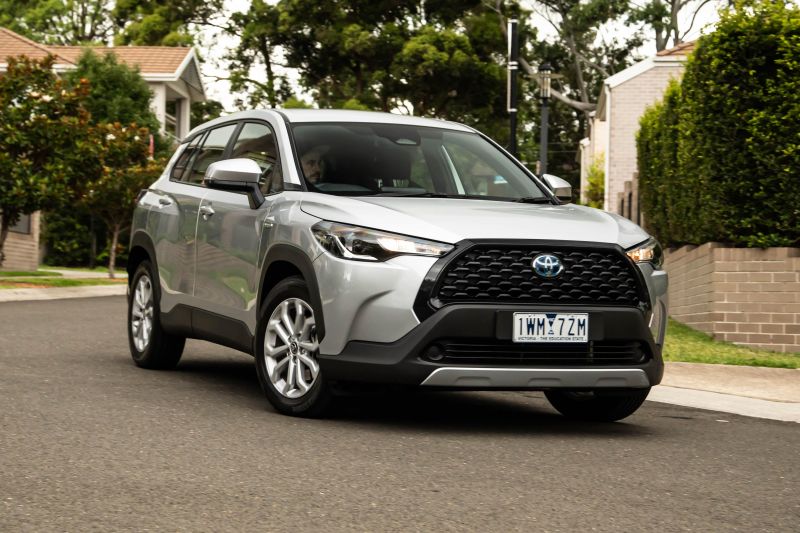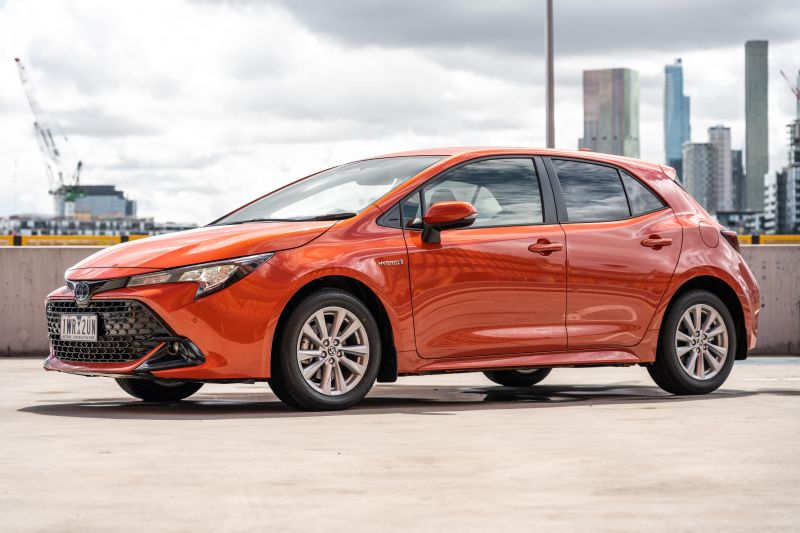The world’s largest carmaker, Toyota, has slashed its electric vehicle (EV) sales forecast by almost 40 per cent.
On Wednesday, Toyota released its financial results for the second quarter of fiscal year 2024, and has detailed how the company is placing more emphasis on hybrid sales rather than EVs in its latest outlook.
The company recorded growth across all segments, with combined Toyota and Lexus sales totalling 5,172,000 between April and September, up roughly 9 per cent on the same period last year.
Electrified vehicles made up 35.3 per cent of its total sales.
However, hybrids in turn made up most of that volume, rather than fully electric vehicles (EVs). There were 1,826,000 electrified vehicles sold in total, but just 59,000 EVs.
Compared to Toyota’s previous forecast for fiscal year 2024, which runs from April 1, 2023 to March 31, 2024, the company expects to sell only 123,000 EVs.
That’s down from 202,000, representing a drop of 39 per cent.
According to its forecast, the brand still expects to sell about 9.6 million vehicles. However, the updated forecast places more emphasis on hybrid sales to make up the numbers.
Hybrids are now expected to net about 3.6 million sales, up from roughly 3.5 million in the previous forecast.
“For electrified vehicles, although BEVs (battery electric vehicles) will decrease reflecting the decline in the Chinese market, we expect a total electrification ratio of 37.2 per cent,” said chief officer of the accounting group Masahiro Yamamoto.
Chief financial officer Yoichi Miyazaki said the EV price war in China is partly responsible for Toyota’s revised forecast, with the company planning to return fire by increasing supply of hybrid vehicles.
However, he credits Toyota’s slow approach to EV adoption as key to the company’s strong financial position.
“Our comprehensive assessment of investments in BEVs and batteries while considering the energy situation and infrastructure in each country, the evolution of technology, and changes in actual customer demand, has enabled us to achieve a strong financial foundation upon which we can promote investments for the future,” Miyazaki-san said.
This isn’t the first time the Japanese auto giant has expressed reservations about the transition to EVs.
The company has previously that it’s not behind in its development of EVs, but instead is being honest with the global market about the pace at which some countries can realistically electrify.
Speaking to Australian media last week, Toyota Australia vice president of sales and marketing Sean Hanley said that any criticism of the brand’s pace to electrification is not based on reality.
“What you’re seeing today is a car company that’s not behind. You see a car company that’s put a lot of investment, a lot of r&d or research and development into electric cars,” said Mr Hanley.
“But you’re also seeing a car company that’s being honest with the market and saying not every part of the globe can do battery electric vehicles only. Not every part of the globe.
“It’s part of the solution to carbon neutrality, but it’s only one piece of the puzzle.
“If you only invest in a single way of getting to carbon neutrality, then you’re essentially ignoring all the other wonderful opportunities and technologies that exist in hydrogen fuel cell, synthetic fuels, etc…
“It just goes on and on and on. So therefore what you’re seeing today is a car company that is progressive, but it’s also real about its future.”
Despite its hesitance to commit to a full battery-electric future, the brand still plans to produce 3.5 million EVs by the year 2030.
The brand also believes that when it introduces its EV models, they will be more reliable in the long-term than other rival EVs – resulting in higher residual values for Toyota’s cars.
“Toyota’s experience with electrification over more than 20 years has made us acutely aware of this and other issues surrounding electrification – such as price parity, scale and general concerns among consumers.” Mr Hanley said.
“This focus on quality also has broader implications because one of the biggest issues for BEVs is residual values. They’re plummeting,” he reiterated.
Citing an overseas study that shows BEVs on average lose 51 per cent of their purchase value in three years compared to 37 per cent for petrol-powered cars, Mr Hanley said this is due to the higher purchase price of BEVs but also market corrections for struggling EV makers that are unable to sell the required volume and being forced into discounting.
Toyota Australia plans to have at least 50 percent of its sales be of electrified vehicles by 2026 (including hybrids) and will introduce around 10 new full-electric models by 2030. Toyota sales in Australia are currently about 30 per cent hybrid.

